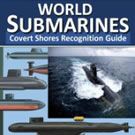| |
|||
| a | |||
Naval
Forces News - USA |
|||
U.S.
Navy Releases Video to Illustrate the Surface Force Distributed Lethality
Concept |
|||
The
U.S. Navy Commander Naval Surface Force, U.S. Pacific Fleet (COMNAVSURFPAC)
just released a video to illustrate the Distributed Lethality Concept.
The distributed lethality concept was introduced (and is being advocated)
by Vice Admiral Thomas Rowden, the Commander of the U.S. Navy's surface
forces. It can be summarized by fitting more weapons on more vessels
in order to "deceive the enemy, target the enemy, and destroy the
enemy". |
|||
 CGI: LPD 17 class amphibious vessel fitted with 8x NSM as seen on Kongsberg's booth during SNA 2016. |
|||
At
the recent Surface Navy Association's (SNA) National Symposium, Navy
Recognition saw many examples and interpretation of this concept
by the naval defense industry. Kongsberg of Norway was showing Naval Strike Missiles (NSM) fitted aboard San Antonio class LPD (as seen in the CGI above). Advanced Acoustic Concepts (AAC, a joint DRS/Thales company) was showing a video of DDG 51 Flight III fitted with a CAPTAS-4 Variable Depth Sonar (VDS). |
|
U.S. Navy video on Distributed Lethality |
|||
Forward.
Ready. Visible. Control of the Seas & Power Projection. Naval Surface
Forces are returning to the offensive! Potential adversaries are increasing
the range and lethality of their weapons, applying surveillance and reconnaissance
across greater distances.all to deny the US and its allies access to the
maritime domain, and the ability to project power from it. As a maritime
nation free use of the seas underpins the core of a U.S. economy that
transports 90% of its goods across water, and it underpins a global system
of trade that works to the advantage of all nations. |
|||










